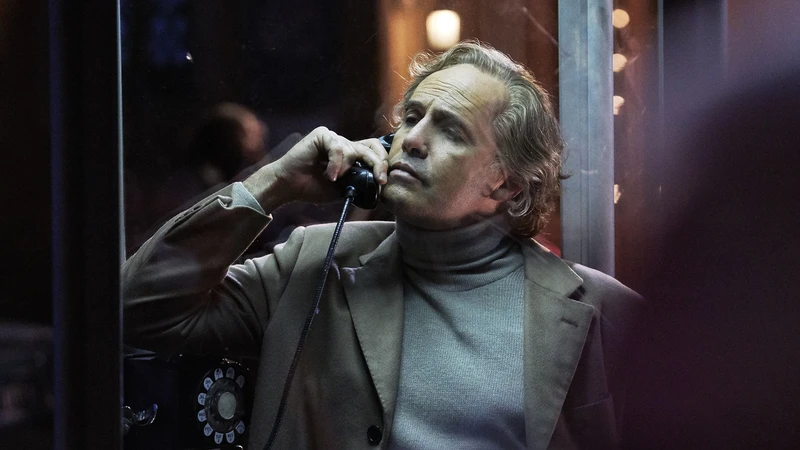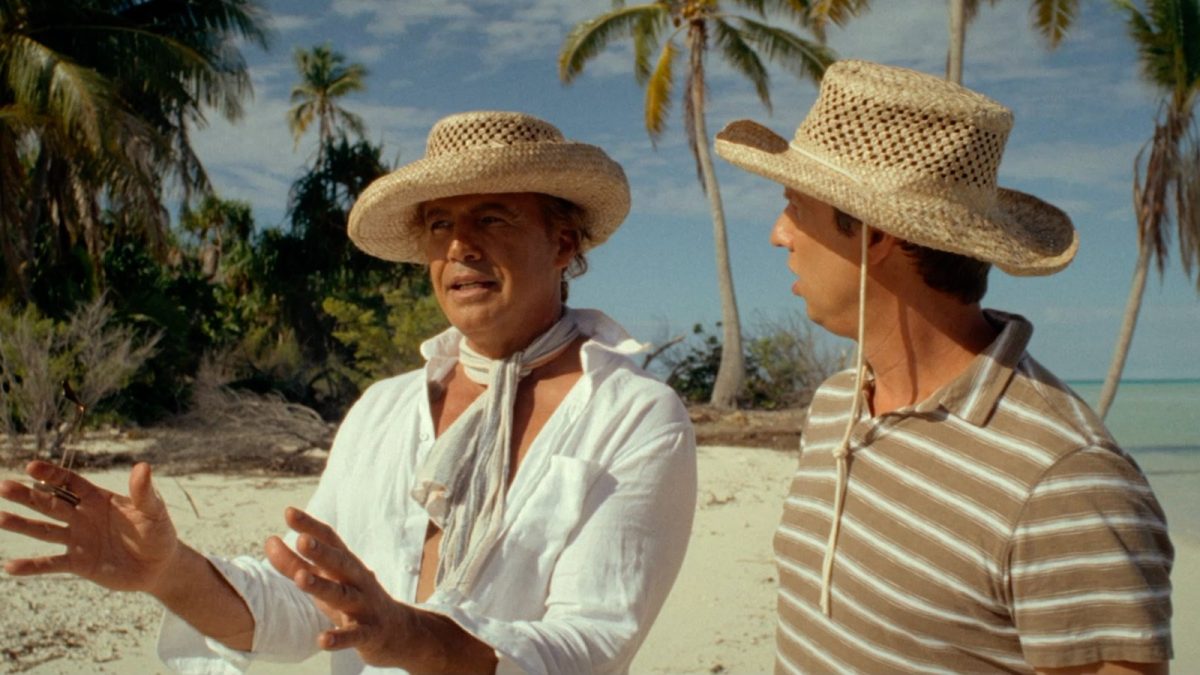Marlon Brando wasn’t just one of the greatest actors of all time, but among the most fascinating celebrities in Hollywood history. Despite giving countless deep, emotionally nuanced performances in classic dramas, Brando earned a reputation for being a wildcard, whose private life was dominated by practical jokes and strange endeavors. A deeper study into Brando’s past and family conflicts would expose a darker, more controversial side of the actor. He was as defined by his activism as he was by his arrogance. Needless to say, Brando seemed like such a towering figure that, surprisingly, there haven’t been more narrative explorations into his life and legacy.
“Waltzing With Brando” isn’t a traditional biopic about the two-time Academy Award-winning actor, but rather a situational comedy in which he plays a supporting role. Leading the film is Jon Heder as Bernard Judge, an environmental planner and architect who was tasked with aiding Brando’s designs in Tahiti during the late 1960s to the early ‘70s. Brando, who at the time was a recluse who considered abandoning acting altogether, was surrounded by an unusual cast of characters, but remained deadset on creating something that would last beyond his lifetime. While Judge is able to strike up a friendship with the unusual star, he finds himself unprepared to adapt his lifestyle altogether to work on the project.
Any film that tackled Brando’s life was going to face the inherent struggle of finding someone to occupy the role, as there is no shortage of footage available as a point of comparison. Brando was a prominent figure in cinema for nearly a half-century, as audiences watched the enigmatic young man of “The Wild One” transform into the heavier, quizzical fence of “The Score.” Occupying the role in “Waltzing With Brando” is Billy Zane, who is himself a former star who has somewhat faded into obscurity. To say that Zane understood the assignment would be an understatement. In fact, the most unfortunate part of “Waltzing With Brando” is that the rest of the film does not live up to Zane’s performance.

While turning Brando into a supporting character was a smart decision, as it retained the inherent mystery that made him so compelling, the issue with “Waltzing With Brando” revolves around nearly all of its supporting players. Heder, known best for his comedic roles, is stuck playing an oddball straight man who seems to exist purely to stare in shock and amusement at Brando’s mannerisms and strange habits. Judge has a compelling story, as his staunch environmentalism made real waves around the world. Unfortunately, “Waltzing With Brando” depicts him as a rather dull, shortsighted professional who drags his boring family drama to Brando’s island.
More Related: 10 Best Marlon Brando Performances
The tone of “Waltzing With Brando” is odd, as the whimsical approach to Brando’s boyish behavior is offset by the occasional reminders of how deeply he felt about social and political issues. Despite the film’s insistence that Brando was put at ease by Eastern philosophy, the scenes with his family in Tahiti are largely centered around sight gags and raucous parties. Similarly, Brando’s infamous stunt when earning his second Best Actor trophy, for “The Godfather,” is treated as a peculiarity, and not a bold act of defiance. Although it would be possible to suggest that an idiosyncratic, often aloof actor could also have profound emotional intelligence regarding controversial topics, the writing in “Waltzing With Brando” isn’t complex enough to wrestle with that concept.
The supporting characters are equally underwhelming, as talented comedic actors like Rob Corddry and Tia Carrere are wasted in thankless roles that feel lifted from early 2000s National Lampoon comedies. While there might have been something interesting in the appearance by Richard Dreyfuss, a contemporary of Brando’s who appears in the film as the investor Seymour Kraft, he doesn’t appear until the final third of the story, and fails to make any significant impact. There isn’t anything wrong with taking a sillier, more simplistic approach, but there is little development to any of these interpersonal relationships. Despite the suggestion that Judge faced marital issues after adapting to Brando’s more inconsequential lifestyle, any serious challenges are quickly set aside.

Even if “Waltzing With Brando” often feels cheap and unfocused, Zane’s performance is undeniably effective, as he perfectly captures both the essence and persona of Brando. It’s impressive that Zane was able to impersonate some of Brando’s most famous screen moments, as the film examines his decision to star in both “The Godfather” and “Last Tango in Paris.” However, the prickly, often surreal decision-making process that Brando adopted is also rendered beautifully, as Zane has the unpredictable energy that made the star such an interesting topic of tabloid discussion.
Zane’s performance is certainly one that paints Brando in a positive light. He draws out the passion he felt for ideas that would seem impossible for anyone else. Given the fame and praise that he earned, why shouldn’t Brando have set his sights on ambitious goals? Nonetheless, there’s also a subtle sadness that Zane finds in the later scenes, which reflects nuances that don’t seem drawn from the script. Brando was so unparalleled as a screen presence that he felt unchallenged and began to fall out of love with acting. He explains to Judge why, to him, it was nothing more than a job. Harder to accept than Brando’s muted response to his own screen appearances was the reality that his humanitarian work would face challenges that humanity as a whole has failed to address in the wake of his death.
The magnetism Zane brings to the role is reason enough to seek out “Waltzing With Brando,” as it’s the type of transformative work that doesn’t feel exploitative. Even if some of the raunchier, gross-out gags in the film fall flat, it has an admirable goal of spotlighting an interesting story. There’s certainly room for a more traditional Brando biopic to exist, as “Waltzing With Brando” is pitched in a very specific register. Undeniably entertaining, yet ultimately frustrating, “Waltzing With Brando” has something to offer to both comedy buffs and hardcore cinephiles, even if it’s not quite capable of completely satisfying either demographic.



![Girl Picture [2022]: ‘Sundance’ Review – A radical albeit slight tale about sexuality, identity & growing up](https://79468c92.delivery.rocketcdn.me/wp-content/uploads/2022/01/Girl-Picture-1-768x432.jpg)



![Puzhu [2022] ‘SonyLIV’ Review: A brooding deconstruction of privilege](https://79468c92.delivery.rocketcdn.me/wp-content/uploads/2022/05/Puzhu-Sonyliv-Movie-Review-1-768x427.jpg)
![Lookback on Lumet: Equus [1977]](https://79468c92.delivery.rocketcdn.me/wp-content/uploads/2018/09/vlcsnap-error268-768x413.jpg)